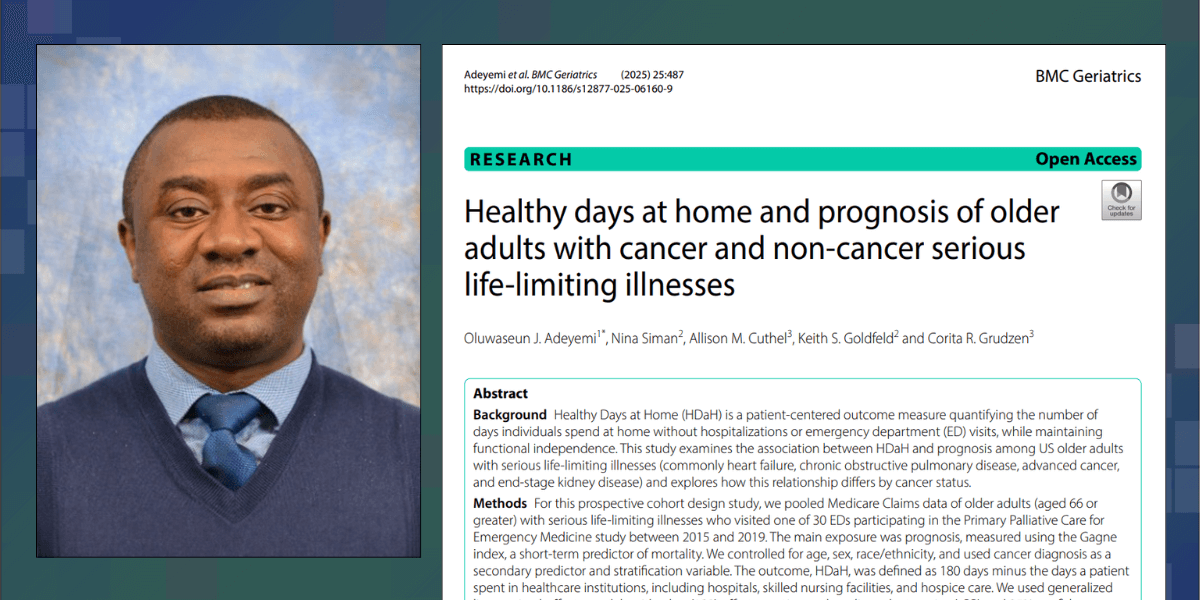In an analysis of data on seriously ill older adults from emergency departments that participated in the PRIM-ER trial, poor prognosis was associated with fewer healthy days at home. However, a cancer diagnosis was associated with more healthy days at home.
The analysis was published online this month in BMC Geriatrics.
PRIM-ER, an NIH Collaboratory Trial, was a stepped-wedge, cluster randomized trial of a palliative care training program in emergency departments in the United States. The program consisted of training in palliative care, simulation-based communication workshops, clinical decision support tools, and audit and feedback.
In the new analysis of data for nearly 123,000 seriously ill older adults, worse prognosis was associated with a lower rate of healthy days at home for patients both with and without cancer. However, having a cancer diagnosis was associated with more healthy days at home. Demographic factors such as age and race/ethnicity were also associated with healthy days at home.
The authors of the report, led by Oluwaseun Adeyemi of New York University, under the guidance of principal investigators Corita Grudzen and Keith Goldfeld, believe this difference may be related to the “structured and comprehensive care pathways available to cancer patients, such as outpatient oncology services, home-based palliative care, and symptom management plans designed to minimize hospitalizations.”
“Our findings highlight the need for tailored care models, including enhanced outpatient services and home-based care to reduce hospitalizations and increase [healthy days at home] for patients with serious non-cancer illnesses,” the authors wrote.
Read the full article.
PRIM-ER was supported within the NIH Pragmatic Trials Collaboratory by a grant award from the National Institute on Aging. Learn more about PRIM-ER.
